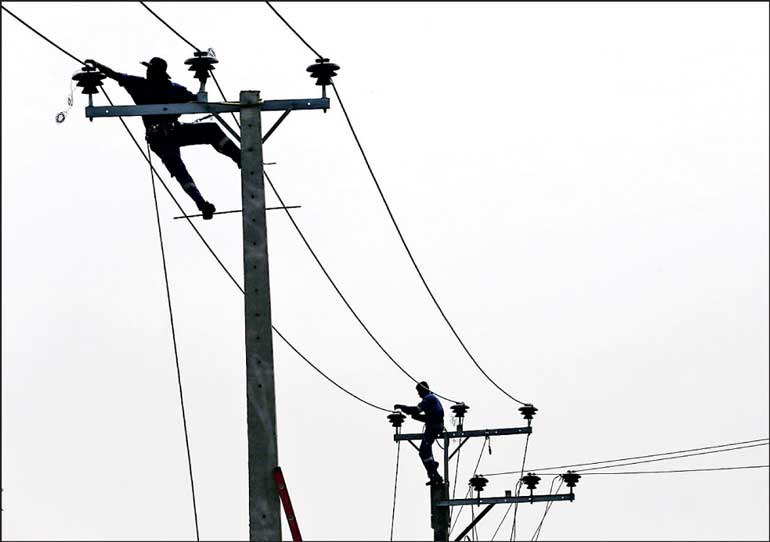Monday Feb 16, 2026
Monday Feb 16, 2026
Tuesday, 3 October 2023 00:07 - - {{hitsCtrl.values.hits}}

 The IMF agreement states to reduce the State enterprises making losses and to maintain cost recovery in electricity pricing. This would mean that State enterprises should be efficiently managed and if they are a monopoly like the CEB then the inefficiencies, wastages, bad planning and management should not be passed on the consumer putting the blame on the IMF. They need to be accountable and free from political interference and be responsible to the regulator.
The IMF agreement states to reduce the State enterprises making losses and to maintain cost recovery in electricity pricing. This would mean that State enterprises should be efficiently managed and if they are a monopoly like the CEB then the inefficiencies, wastages, bad planning and management should not be passed on the consumer putting the blame on the IMF. They need to be accountable and free from political interference and be responsible to the regulator.
The CEB now wants to make the third price revision and have submitted details to obtain a price revision to the regulator.
The reasons given are the non-availability of rainfall and the lack of water in the reservoirs resulting in reduced power generation using hydro and the reduction in the coal power generation due to outages which will result in the electricity prices going up adversely affecting the poor consumer, industrialists and other commercial users.
In the CEB there is a mix of generation of power which includes hydro, thermal fuel, thermal coal and non renewables, wind and solar power.
This would mean that the power generation should be undertaken at the least cost and this would require technological inputs as well as good cost and management accounting to enable the right cost to be calculated and to provide the least cost pricing to the consumers, industries and other commercial users.
In order to arrive at the correct pricing of electricity generation of the plants before making a price revision it is necessary to carry out a cost audit of all the generation plants for which they should have maintained cost records in order to determine their efficiency and calculate the direct cost of electricity generation of each plant. This will also enable us to identify indirect costs as well as the usage of raw materials which are a major cost in the generation of power. It will also help to identify inefficient plants having very high costs of electricity generation which need to be scrapped and not be a burden to the consumer. Cost records for all these generation plants should be maintained as this will enable the regulator to satisfy themselves by doing a cost audit using the cost records maintained as well as the efficiency of the plants and arrive at the actual cost of generation before undertaking a price increase.
The reason for the increase in the price is given as the non-availability of the low-cost hydro power as a result of low rainfall and as a result the thermal power plants have to run either owned by CEB or to purchase from private producers at a higher price. But it is noticed that in thermal generation that the cheaper coal power generation too has been reduced due to non-availability of coal or repairs to the plant. This is indeed a management decision and hence the losses incurred due to bad management decisions cannot be passed on to the consumer and should be taken note of by the regulator.
In the year 2021 as per available Annual Report the generation mix was hydro power 43%, coal power 33% thermal fuel 16% and wind and other renewables 8%. That year the losses were reduced as a result of more hydro and less fuel used.
But the performance could have been further improved by having a very effective costing system and CEB should have a separate costing department under a DGM to calculate the true cost of generation and for efficient management decision making to provide least cost generation which will be beneficial to consumers. Since the Government is not going to subsidise the supply of electricity, the consumers will have to pay for any increase in prices and pay the additional costs. This will also result in industrial users and other commercial customers becoming uncompetitive and unprofitable and may even have to close down.